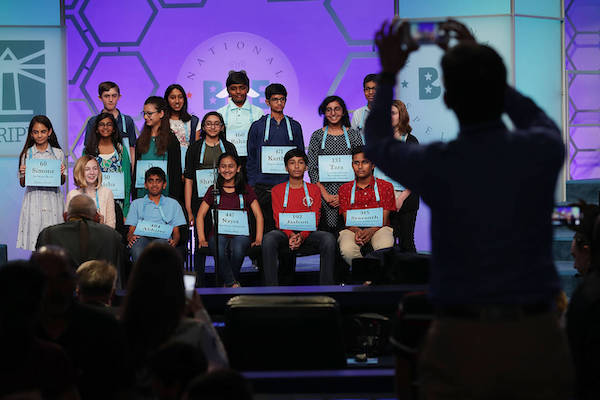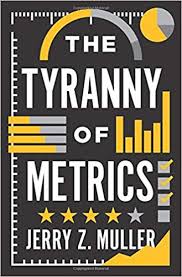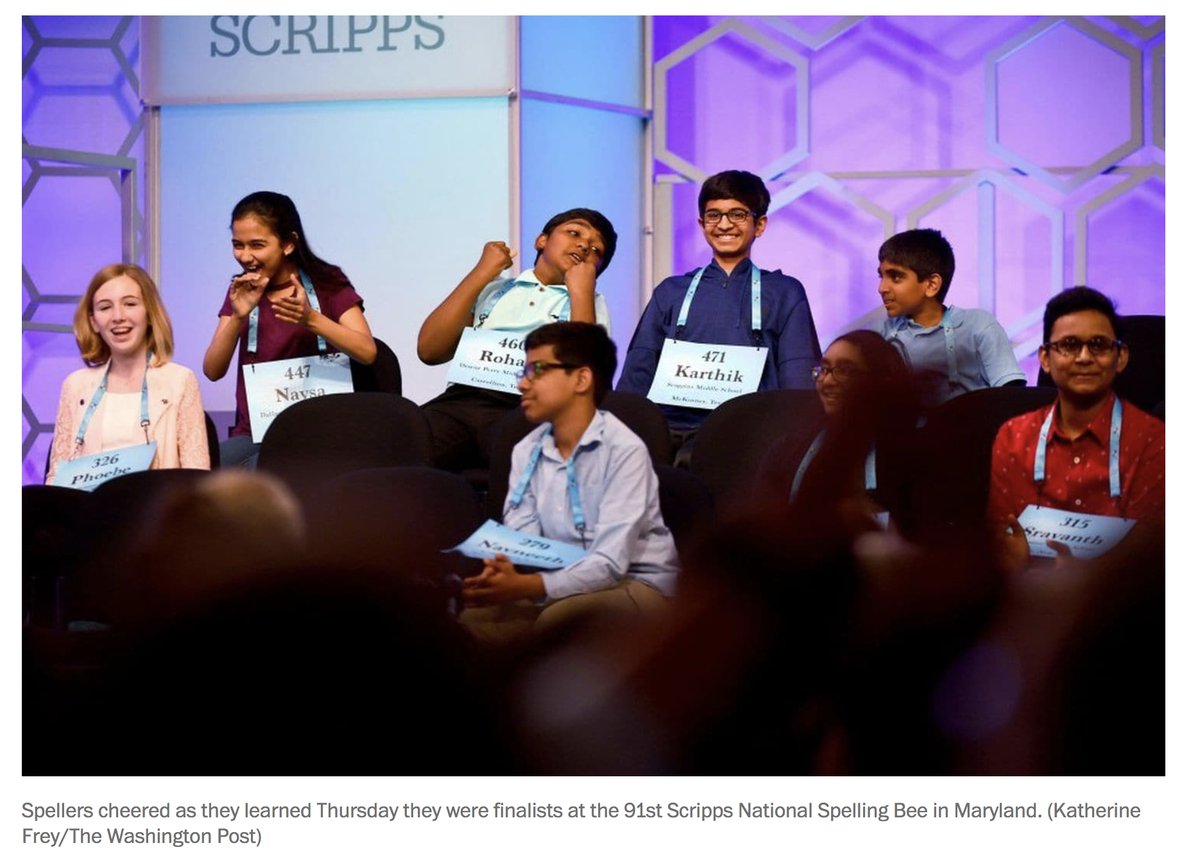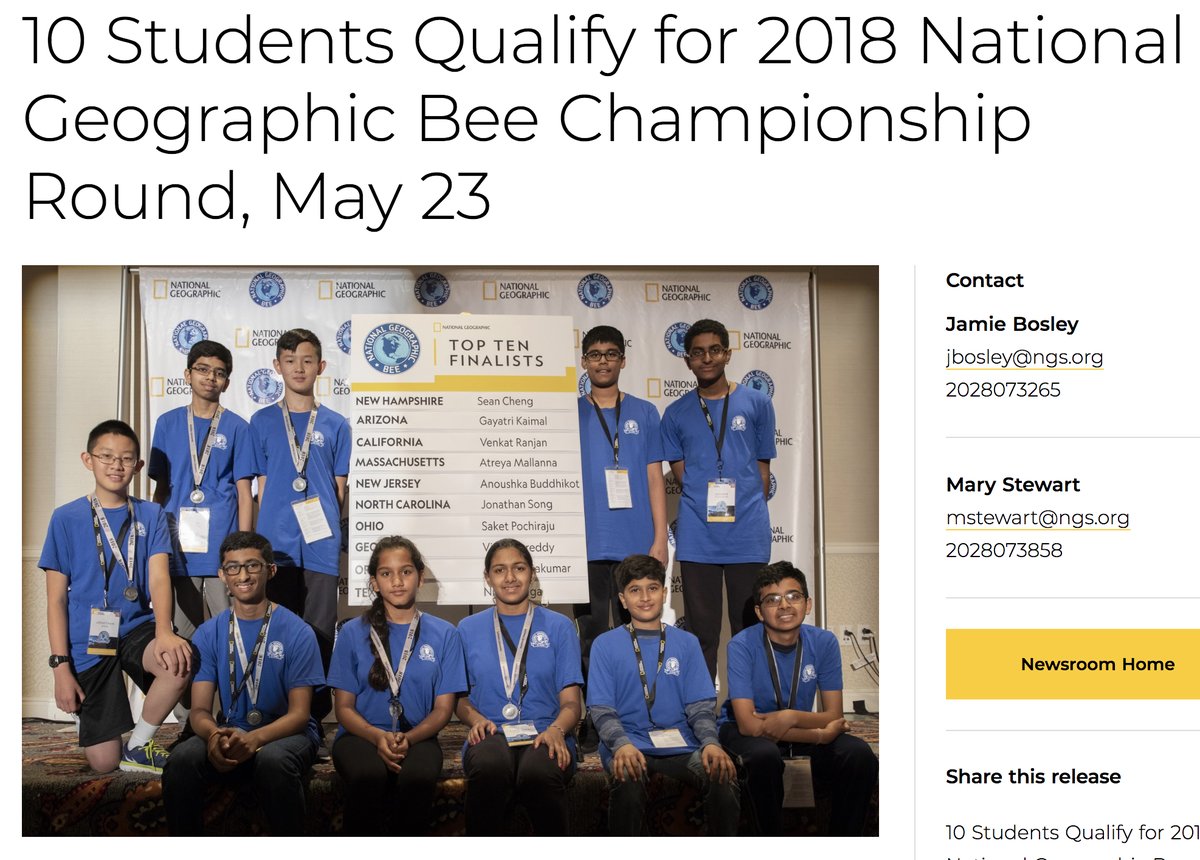
At the Spelling Bee, a New Word Is M-O-N-E-Y – Elite spellers now can pay to get a spot in the national event. For this generation of zealous competitors, it just means another chance to shine:
An extra factor driving the stakes for this generation of spellers is a concerted effort by non-U.S.-born parents, particularly Indian-Americans, to make a mark on the competition. In 1985, Balu Natarajan was the first child of immigrants to win the Scripps bee. Of the 33 contests since then, fellow Indian-Americans have won 17 more, including the last 11 straight.
Indian-Americans, just 1% of the U.S. population, have established their own minor-league spelling bee circuit that adds opportunities to hone on-stage performance. They have led the way in paying for coaching, buying or developing proprietary study software and traveling to participate in more bees. Many spellers’ parents came to the U.S. via the Immigration Act of 1990 that admitted exceptionally skilled immigrants who specialize in STEM topics. It is no mystery that they would value education—and recognition of it—above all else; it is the very thing that gave them access to this country.
 Reminds me of the stuff in Jerry Muller’s The Tyranny of Metrics. Now that the national bee is going in this direction it will be impossible to reverse the trend and make it a test of childhood exuberance and passion, as it was until recently. Rather, it will be just another part of the meritocratic conveyer belt, another notch in one’s resume or c.v.
Reminds me of the stuff in Jerry Muller’s The Tyranny of Metrics. Now that the national bee is going in this direction it will be impossible to reverse the trend and make it a test of childhood exuberance and passion, as it was until recently. Rather, it will be just another part of the meritocratic conveyer belt, another notch in one’s resume or c.v.
And, unfortunately, it illustrates one of the effects of the rise of Asian American immigrant parents, who come from extremely competitive societies, and so bring the same ethos to the United States. Childhood in the old sense is disappearing, as people begin to prepare their children for adult roles in the economy before they enter elementary school.

